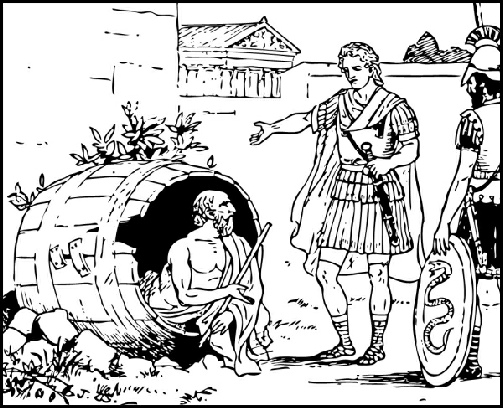
Apologetics ~ Charlotte Higgins
Extracts from “It’s All Greek To Me” by Charlotte Higgins, 2008
“The extraordinary challenge to achieve self-
[Introduction]
“The intellectual achievements of the ancient Greeks were quite simply extraordinary. They shaped the basic disciplines and genres in which we still organise thought: from poetry to drama, from philosophy to history, from natural history, medicine and ethnography to political science. We have been inexorably moulded by ancient Greece.”
[Introduction]
“Reading the Greeks is a joy that is at risk of slipping quietly out of our grasp if classics continues its drift away from curricula and from the mainstream.”
[Introduction]
“There is no more gripping, moving account of mortality, war and the human emotions than the Iliad; no better yarn spun than the Odyssey, surely the original novel.”
[Introduction]
Homer is the alpha and omega of this book: we shall begin and end with him, because to read Homer is to enter a world of unparalleled and wonderfully sustaining richness; and because Homer is the beginning of understanding so much else in Greek thought and writing.”
[Introduction]
“It is worth thinking about ancient Greece because it brings us a perspective on the way we live now, from our politics to our sense of history. And reading the Greeks is also a source of unbounded enrichment and pleasure.”
[Introduction]
“We will never completely grasp ancient Greece. An enormous wealth of literature, art, architecture and other artefacts have survived but, for every survival, there are a thousand losses. We have 20 dramas by Euripides, but we know that his complete works numbered 90 plays. For Aeschylus, we have 7 out of 90 extant. And for Sophocles, just 7 out of a staggering 123.”
[Introduction]
“If you haven’t read them [the Iliad and the Odyssey], you have a wonderful, life-
[Ch 1: The Alpha and the Omega]
“Homer is a rip-
[Ch 1: The Alpha and the Omega]
______________________________
See also:
Edith Hamilton – The Greek Way [Book, 1930]
Dorothy L. Sayers – The Lost Tools of Learning [Talk at Oxford, 1947]
Tracy Lee Simmons – Climbing Parnassus [Book, 2002]
Virginia Woolf – On Not Knowing Greek [Essay, 1925]
______________________________
Diogenes and Alexander

| Classics Apologetics |
| Edith Hamilton |
| Charlotte Higgins |
| Dorothy Sayers |
| Tracy Lee Simmons |
| Virginia Woolf |
| Greek Sayings |
| Audio Files |
| Classical Greek |
| Classical Vocabulary |
| Indexer |
| Fact |
| Arnega |
| German Irregular Verbs |
| Change History |
| Change History |
| Corrigenda |
| Change History |
| Features |
| Installation |
| Subjects and Topics |
| History |
| FAQ |
| Classics |
| English |
| Computers |
| Geography |
| History |
| Music |
| Science |
| Shakespeare |